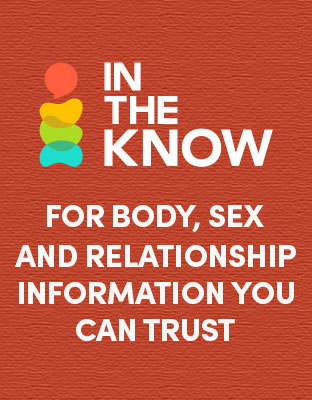Unintended pregnancy - continuing a pregnancy
If you’re experiencing an unintended pregnancy and have decided to continue the pregnancy, this fact sheet is for you.
If you are considering terminating the pregnancy you might like to see the factsheet “Unintended Pregnancy - Abortion”.
You may be feeling excited, worried or confused - or all of these emotions at once. You might not even be sure how you feel. All of these reactions are completely normal.
You may be planning to parent with a partner or on your own. You may want information about fostering and adoption.
Parenting with a partner
Whether or not you choose to get married, to live together, or to live apart, making the commitment to raise a child as a couple is a big decision.
It’s important to talk to your partner about how you both feel about all the changes to your relationship, income and lifestyle that raising a child will bring. It’s normal to feel a range of emotions, and to be concerned about how you will cope.
If you have no history of making joint decisions as a couple, or your relationship is rocky, the decision making journey may be very new, difficult, or overwhelming.
Some questions to consider might include:
• Are we financially and emotionally ready for a child?
• Are we okay with the thought of a long-term, committed relationship?
• Would we stay together if there wasn’t a pregnancy?
• Are we prepared to raise the child alone if things don’t work out?
Parenting on your own
Some people may choose to parent alone and others may find themselves parenting alone due to the breakdown of a relationship or differences in how to proceed with an unintended pregnancy.
It’s good to seek support from your family, friends and community if you can and it helps to talk through emotional issues with somebody else. If you are living with your family while you have the baby, you may be able to talk to someone at home, or perhaps you can talk to a friend or another person you trust. There is also more information about experiences of sole parents on: Raising Children Network
You may also be eligible for financial assistance for after the baby is born.
For more information on the support offered by Department of Human Services
Someone to talk to:
If you feel you don’t have anybody to talk to, counsellors can help you deal with the emotional and practical issues of raising a baby on your own or with a partner. Find what counselling and support is available to you by calling: The Family Relationship Advice Line (1800 050 321) - available from 8 am to 8 pm, Monday to Friday, and 10 am to 4 pm on Saturday (local time), except national public holidays or Family Relationships Online
Continuing the pregnancy and adoption or foster care
Adoption: There are all sorts of reasons parents consider making an adoption decision for their child. Often, this decision is made during a very emotional and difficult time.
Adoption is the legal process of placing your child with people who will raise the child as their own. Adoption is a permanent decision, where all legal rights and responsibilities are transferred from the birth parents to the adoptive parents.
You as a birth parent, your child as an adoptee and your child’s adoptive parents have the
right to access information about each other from the time of the adoption. A child can continue to have contact with their birth parent after an adoption order. An adoption plan agreed by two or more of the parties can detail how this contact will be maintained.
If you feel you can't cope with a new baby or your child, adoption is not the only alternative. Other options include:
• Fostering: Foster care involves your child being looked after by another family. There are different types of foster care.
• Temporary Foster Care: This can be used while you sort out accommodation, financial or personal problems. During voluntary care (not ordered by the Court) you remain the child’s guardian and can see your child. Temporary care is usually limited to several weeks.
• Long Term Foster Care: If your child is in long-term foster care, you will lose legal guardianship and/or custody, but will still be your child’s legal parent. Children often become emotionally attached to their foster family. You need to know that the Court might not agree to return your child when you are ready.
Information about Adoption/Fostering:
Community Services provides a range of adoption services. You can discuss your options for the care of your child with a qualified and experienced worker (contact Adoption and Permanent Care Services on 02 9716 3003 or email: adoption@community.nsw.gov.au). Further information about the Adoption process and alternatives can be found at: http://www.community.nsw.gov.au/docs_menu/parents_carers_and_families/fostering_and_adoption/adoption/are_you_a_birth_parent.html
Healthy pregnancy
If you are considering continuing the pregnancy there are things you can do to try to ensure a healthy pregnancy. The sooner you see a doctor or midwife the better.
It is important to discuss any medications you are taking with your doctor or midwife. You can also get advice from the Mothersafe information service.
Mothersafe: for information on medications in pregnancy for NSW women 1800 647 848 or go to their website www.mothersafe.org.au.
Eat a diet that includes lots of fruit and vegetables. Try to limit the amount of caffeine you drink (this includes coffee and cola drinks), as well as junk food that is high in fat and sugar. Gentle, regular exercise is also important.
Drugs, alcohol and smoking should be avoided.
For a healthy pregnancy you are advised to take certain supplements during pregnancy and avoid certain foods that may put you at risk of an infection called Listeria.
Folic acid supplements are advisable for all pregnant women. You should have 0.5mg tablets daily for the first three months of pregnancy. Folic acid reduces the risk of having a baby with a neural tube defect such as spina bifida.
It is also recommended to take 150 micrograms of iodine daily if you are pregnant or breastfeeding.
A pharmacist can advise you about supplements that are suitable for pregnant women.
To avoid a Listeria infection in pregnancy, it’s best to avoid eating unprocessed foods such as unpasteurised milk, soft cheeses, cold processed meats, pâté, raw seafood and smoked seafood.
Your doctor can advise you about the tests that are available during pregnancy to detect abnormalities.
Information about pregnancy care
For more information about pregnancy care you can contact the maternity unit of your local hospital and speak to a midwife or a social worker. You can also call Talkline on 1300 658 886 to talk to a reproductive and sexual health nurse. Talking to the nurse is confidential and anonymous.
Information is also available from the Commonwealth government website: Pregnancy, Birth and Baby or (Helpline: 1800 882 436)
For further information
• Contact the Family Planning NSW Talkline on 1300 658 886 or go to www.fpnsw.org.au/talkline
• NRS (for deaf): 133 677
• Commonwealth government website: Pregnancy, Birth and Baby or (Helpline: 1800 882 436)
• Mothersafe: for information on medications in pregnancy for NSW women 1800 647 848
The information in this Factsheet has been provided for educational purposes only. FPNSW has taken every care to ensure that the information is accurate and up-to-date at the time of publication. Individuals concerned about any personal reproductive or sexual health issue are encouraged to seek advice and assistance from their health care provider or visit an FPNSW clinic.




